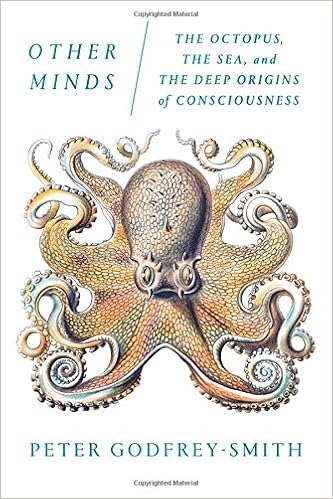
Derb’s April Diary: Righting The World’s Wrongs, Automation, And The Hu-Wite Cliffs Of Dover, Etc.
05/01/2017
Trumpism: righting the world’s wrongs. Like a lot of other people who supported Donald Trump’s presidential campaign, I was left disappointed and depressed by the April 7th attack on Syria. I had supposed that with Trump’s election we would at last leave the Middle East to its endless fractal squabbles and give our full attention to domestic issues, which are many and pressing.
Apparently not. We are to go on being the world’s policeman, righting the world’s wrongs. The Moralistic Imperative — Someone somewhere is doing something wicked! We must stop them! — continues to prevail in the White House.
The disappointment thickened and the depression deepened when I read about polling after the attack. Americans liked it; and Republicans — so therefore, presumably, Trump voters — liked it a lot.
Who is to blame for this mentality? It’s not innate to the U.S.A. For most of our history we have known how to mind our own business.
Woodrow Wilson is commonly named as the culprit. There was indeed somewhat of the Crusader in him. His speech, given a hundred years ago this month, asking Congress to declare war on Germany was cast in globalist-moralistic terms: "The world must be made safe for democracy" and so on.
But still, what had actually sent Wilson to Congress to ask for a declaration of war was the sinking by German submarines, in the early weeks of 1917, of seven American merchant ships: Housatonic, Lyman M. Law, Algonquin,Vigilancia, City of Memphis, Illinois, and Healdton.
That’s a fair casus belli, whatever you think of Wilson. (Although Prof. Gottfried will give you an argument on that.) And — again, whatever you think of the guy — he went to Congress and asked for a declaration of war. How quaint does that sound?
There was plenty of opposition to the war nationwide, though; and when the war was over, Americans turned away from globalist engagement for an entire generation. So, no: globalist moralism is not an innate American characteristic.

A friend with whom I discussed this put the blame on Jerry Siegel and Joe Shuster, who created the Superman character in the mid-1930s. It was Superman, said my friend, who planted the idea of crusading against evil in the American mind.
I don’t buy it. I’m not an expert on comic books, but my recollection is that Superman crusaded entirely against domestic villains. His popularity arose from a widespread desire for honest law enforcement, not for putting the whole world to rights.
Surely the great turn came with WW2 and the Cold War. The defining statement of globalist moralism was John F. Kennedy’s declaration, in his Inaugural address, that: "We shall pay any price, bear any burden, meet any hardship, support any friend, oppose any foe to assure the survival and the success of liberty."
Historians Robert Catley and David Mosler called that "a Wilsonian blank cheque" (using the Australian spelling). Looks like we're still good for payouts from that check.
My low Party number. The widespread approval for Trump’s Syria attack, even among our fellow Deplorables, is a useful reminder that while the Western world is displaying a turn towards nationalism, well-thought-through opinions of the Dissident Right or Alt Right variety — the kinds of opinions you read here at VDARE.com — are held by only a small minority.
That’s even more the case with HBD (Human Bio-Diversity). It seems brightly obvious to me, and perhaps also to you, that geographically long-isolated human populations, breeding almost entirely among themselves, from different founder groups and under different pressures from natural selection, will develop different statistical profiles on all heritable traits.
Since everything we can quantify about human nature, including the dimensions of behavior, personality and intelligence, are to some degree heritable, those features will diversify along with height, skin color, hair texture, disease susceptibility, and the rest. Isn’t this just elementary biology?
Hardly anybody thinks so. The quantitative blogger Inductivist — I think I should say "ex-blogger": he seems to have abandoned the keyboard, at lease for blogging purposes, last September — back in 2010 did some tracking of responses in the General Social Survey to the question: "On the average, blacks have worse jobs, income, and housing than white people. Do you think these differences are because most blacks have less in-born ability to learn?" The conclusion from his analysis was, to quote the heading of the relevant post: "There is no Silent but Sensible HBD Majority."
There were quite a few race realists in the 70s, but the number has dropped to around 10 percent. Things have only gotten worse post-Bell Curve (1994).A different blogger, Occidentalist, who has likewise since quiesced, did an update in 2013 and came to the same conclusion. His charts — again they come from the General Social Survey — show an actual decline in HBD awareness from 1977 to 2012, the proportion assigning black underachievement to "inborn disability" dropping from 25 percent to less than 10 percent.
Worse yet, when he decomposed the responses by Wordsum score — a quick'n'dirty proxy for IQ — the smartest respondents were least inclined to HBD explanations for social outcomes. Plainly the decades-long push to establish the no-such-thing-as-race, Standard Social Science explanatory model throughout our educational system has been successful.
(I’m obliged to the excellent but anonymous Dissident Right tweeter tcjfs for those links.)
We HBD-ers are thus an insignificant, marginalized (may as well steal some of the SJWs' vocabulary) minority, especially among the well-educated portion of the populace.
This can’t be good for our society at large, but I personally don’t mind it. I even find an occasion for pride in it, as follows.
Back when being a communist was subversive — and in some jurisdictions, dangerous — the big status marker among the faithful was having a low Party number. Having a low Party number meant you had joined the Party early on, from inner conviction, not because Party-member friends had persuaded you, and certainly not because it was trendy in your social clique.
Well, HBD-wise, I have a low Party number. I was a founder member, or at least a very early one, of Steve Sailer’s HBD online discussion group back in 1999. That’s about equivalent to having joined the Communist Party of the U.S.A. in 1919, the year it was founded.
Nowadays American communists hold prestigious positions at our universities and command five-digit speaking fees on the lecture circuit. Close fellow-travellers have been elected mayors of major U.S. cities, or had their books assigned as standard reading-matter for college courses.
So as marginalized and subversive as we HBD-ers currently are, perhaps we shall likewise find honor and wealth at last. I may yet, if I live long enough, get to cash in on my low Party number.

From active to passive. My VDARE.com colleague Brenda Walker has been doing sterling work chronicling the coming End of Work.
Rice University computer scientist Moshe Vardi believes that in 30 years humans will become largely obsolete, and world joblessness will reach 50 percent. [Retail Use of Automation Is Increasing by Brenda Walker; VDARE.com, April 30th.]I have my issues with the general thesis. I've noted before that in my suburban neighborhood of one-family houses, around one house in eight on any given day is receiving the attentions of a contractor.
But yes, I'll agree: A lot of jobs — a lot — are going to disappear in the next couple of decades. Probably — I’m thinking about those contractors — jobs in the middling-clerical categories will take the biggest hits. We no longer need tax preparers or travel agents, but we still need plumbers and roofers.
Yet this hardly ever comes up in mainstream political talk. I just watched 13 minutes and 49 seconds of Bill Maher interviewing 2020 Presidential hopeful (everyone seems to think) Senator Elizabeth Warren. She didn’t mention it. Maher didn’t bring it up, either.
They also didn’t mention immigration. If great numbers of jobs are going to disappear, why are we settling a million and a half foreigners every year, most of them low-skilled? Oh right: we'll give them all free college and retrain them to be software engineers. Uh-huh.
Our public political conversations are infantile. The Maher-Warren conversation could have been taking place fifty years ago. The rich are getting richer! More kids should go to college! Affordable health care! It was a time warp. I thought any minute I'd hear about the Missile Gap.
"The supreme function of statesmanship is to provide against preventable evils," said Enoch Powell. That would involve thinking about the future in a well-informed, imaginative way, though. As Powell quickly discovered, the number of politicians capable of doing that, and willing to do it out loud, in any given generation is some integer less than two.
There are tremendous technological advances just over the horizon, that will bring with them great social changes. Autonomous vehicles, for example: even discounting for tech-boosters' hype, they are clearly going to be with us soon.
I’m old enough to remember when operating a car was a hobby that lots of people took pleasure in. The name of the hobby was "motoring." Now it’s just a chore — not "motoring," just "driving" — but it still needs some skill and attention. It’s still a thing.
When autonomous vehicles settle in we shall have gone all the way from pleasure, to chore, to … nothing: from active-and-pleasurable, via active-but-boring, to passive.
We'll find new pleasures, I’m sure; but shall we find new chores? Active chores that engage our minds and bodies? Might it be that human beings need chores?
There are preventable evils in there somewhere; but to judge from the Warren-Maher exchanges, nobody in mainstream politics or punditry wants to talk about them.
The Word versus the World. A Radio Derb listener took issue with my saying, in the April 28th podcast, that our gentry elites are smarter than the native white proles they despise. "That makes it easier for them to maintain control," I said. "They can bamboozle and outfox the proles. It’s an unequal contest."
My listener thought I was oversestimating elite smarts. "I doubt many current Ivy League students would be capable of the math that was required at NASA in the 1960s," he wrote, "or would be able to possess the historical knowledge & physical stamina of the great Victorian explorers."
It’s a fair point. However, the people who set and enforce the ideological agenda are not mathematicians. They are not People of the World but People of the Word — liberal-arts and Law School graduates, mostly. Math and hard-science practitioners are People of the World.
The World and the Word are two different realities; or rather, one of them is a reality and the other is a tissue of feelgood sound effects.
As a lifelong math and science geek, I have long since resigned myself to the fact that in the social realm, when the World comes up against the Word, the Word wins pretty much every time.

The hu-wite cliffs of Dover. Listening to my Vera Lynn 100 CD I noticed that she pre-aspirates the [w] sound when singing "The White Cliffs of Dover." She makes it [hw].
The most famous practitioner of this phoneme nowadays is of course Jared Taylor of American Renaissance, the hu-wite advocacy group (and also of VDARE.com). Jared’s an outlier, though; the sound is pretty rare.

The rarefication has taken place across the last fifty years. My 1958 edition of Prof. Charles Thomas’s The Phonetics of American English has the following regarding the English-language semivowels "w" and "y" ([w] and [j] in International Phonetic Alphabet symbols):
Loss of the aspirate [h] from the sequence [hj], as in [judʒ] and ['jumən] for huge and human, is usually considered substandard in all English regional types, though common in most large cities. Similarly, the substitution of [w] for [hw], as in [wɛn] for when and [’sʌmwɑt] for somewhat, is often considered substandard in America, though also common in most large cities. In the south of England, on the other hand, the substitution of [w] for [hw] is normal.I frowned at Prof. Thomas’s last sentence there. I can remember the sound of 1950s southern British English pretty well, and [hw] was common — common enough to give me a frisson of nostalgia when I hear it from Dame Vera, or Jared.
I consulted Prof. Thomas’s transatlantic counterpart, Prof. Daniel Jones, whose classic Outline of English Phonetics, in its 1962 edition, also dwells on my bookshelf. This is what he says about usage over there back then:
The breathed consonant corresponding to w (phonetic symbol ʍ) is used by many English people in words spelt with wh. Thus what, which are often pronounced ʍɔt, ʍitʃ. This pronunciation, with a variant hw which is difficult to distinguish from it, is regularly used in Scotland, Ireland, the North of England, and America. In the South [i.e. of England] the more usual pronunciation of these words is wɔt, witʃ, etc, though the use of ʍ or hw is sometimes taught as being more "correct."Prof. Jones’s "more usual" agrees better with my auditory memory than Prof. Thomas’s "normal." In southern England around 1960 it was indeed "more usual" to drop the aspiration, turning [hw] into [w]. It was a 60-40 sort of "more usual," though, not a 90-10 "normal."
The aspiration was a class marker, and also a sex marker. You were more likely to hear it from an upper-class person, and much more likely to hear it from a female. It was very commonly heard from working-class females who wanted to rise above their origins. My own mother, a coal-miner’s daughter, used [hw] and [hj]. Vera Lynn, come to think of it, is the daughter of a plumber and a seamstress.
Sorry: I have a minor obsession with these phonetic peculiarities. Didn’t mean to make a hu-yuge thing of it …
Cancel my subscription! No, wait … I have a sort of abused-wife relationship with New Yorker magazine. I can’t stand the damn thing … except when it offers me psychic rewards, which it always does when I’m on the point of calling them up and screaming down the phone "CANCEL MY DAMN SUBSCRIPTION, DAMMIT!"

The May 1st issue, for example, led off with a piece by the editor, David Remnick, frothing and seething about President Trump at quite heroic length — over four thousand words.
An unprincipled, cocky, value-free con who will insult, stiff, or betray anyone to achieve his gaudiest purposes … This Presidency is so dispiriting … The clownish veneer of Trumpism …For Heaven’s sake, guy. Calm down, have a drink.
Their editorial matter is all like that — from out on the far, far Left. So what am I doing subscribing to the darn thing? Just taking it for the cartoons?
No. I take it for the good pieces, of which there’s one in every two or three issues.
Case in point: the article titled "A Science of the Soul" in the March 27th issue. It’s a profile of the philosopher Daniel Dennett, who has interesting ideas about the nature of consciousness.
That’s one of my interests. I've been reading (and sometimes reviewing) books on the topic for years. I've read Dennett’s book Consciousness Explained, so I know, for example, the difference between a zombie and a zimbo. I have attended the annual "Toward a Science of Consciousness" conference when I could persuade a gullible kindly editor to pay me for doing so (2008 and 2014 — Dennett was a speaker at the latter one).
This New Yorker article — it’s by Joshua Rothman — says most of the interesting things that can be said at a magazine-article level about the problem of consciousness, and manages also to give a sympathetic and appealing picture of Dennett the man.
Dennett’s a physicalist, not very patient with metaphysics.
He regards the zombie problem [i.e. how do we tell from the outside whether a creature is conscious?] as a typically philosophical waste of time. The problem presupposes that consciousness is like a light switch: either an animal has a self or it doesn’t. But Dennett thinks these things are like evolution, essentially gradualist, without hard borders. The obvious answer to the question of whether animals have selves is that they sort of have them. He loves the phrase "sort of." Picture the brain, he often says, as a collection of subsystems that "sort of" know, think, decide, and feel. These layers build up, incrementally, to the real thing. Animals have fewer mental layers than people — in particular, they lack language, which Dennett believes endows human mental life with its complexity and texture — but this doesn’t make them zombies. It just means that they "sort of" have consciousness, as measured by human standards.I did not know until reading this piece what a busy and capable practical man Dennett is.
For many years he suspended his academic work during the summer in order to devote himself to farming … Dennett is an avid sailor; in 2003 he bought a boat, trained his students to sail, and raced with them in a regatta … "Until I met Dan," [philosopher Nicholas] Humphrey told me, "I never had a philosophical hero. Then I discovered that not only was he a better philosopher than me; he was a better singer, a better dancer, a better tennis player, a better pianist. There is nothing he does not do."Plainly there’s nothing "sort of" about Dennett’s engagement with the material and social worlds. If we must have philosophers, that’s the kind I want to have.
Book of the Month. There’s a passing mention of octopuses in that Dennett article. For consciousness hobbyists, the octopus (along with the related squid and cuttlefish) is very interesting, because they are quite smart.
Octopuses are invertebrates: they don’t have backbones, nor indeed any skeleton at all. Vertebrates and invertebrates parted company around 600 million years ago, when life-forms were still very primitive, and certainly not intelligent. The fact that octopuses have intelligence therefore shows that intelligence developed independently from almost nothing in two quite different lines of creatures.
Octopuses in at least two aquariums have learned to turn off the lights by squirting jets of water at the bulbs when no-one is watching, and short-circuiting the power supply. At the University of Otago in New Zealand, this became so expensive that the octopus had to be released back into the wild.That’s from Other Minds: The Octopus, the Sea, and the Deep Origins of Consciousness, which I read this month. I couldn’t swear that it’s the first book I've ever read about octopuses, but it’s definitely the first book about octopuses written by a philosopher. The author, Peter Godfrey-Smith, is a professor of philosophy at City University, New York.

Octopus intelligence is a bit odd in that octopuses are not very social animals. They mate of course, and fight; but they don’t go in for the kind of co-operation and social ranking that characterize primates and some other vertebrates (along with the social insects … but that’s a whole different story).
So you'd think that they wouldn’t have much need for a Theory of Mind — that is, a way of making mental models to explain what’s going on in other octopuses' heads. They do, though, at a low level; and they even seem to practice some rudimentary kind of communication.
Well: I had just finished Other Minds when a lunch date came up with an old friend in New York City. We met at Kellari Taverna, a Greek restaurant on West 44th Street.
Big meals midday aren’t my thing, so I ordered one of Kellari’s lighter offerings: octopus salad.
I must say, while octopuses may not have a very well-developed Theory of Mind, they taste delicious.

Baboon Metaphysics. That’s the title of the book I’m now reading, Baboon Metaphysics. Peter Godfrey-Smith mentions it in his octopus book, and I just couldn’t resist the title. Baboon metaphysics!
(The title is taken from an 1838 entry in Charles Darwin’s notebook: "Origin of man now proved — Metaphysic must flourish — He who understands baboon would do more towards metaphysics than Locke.")
I’m not very far into Baboon Metaphysics yet, but I can already tell you that you do not want to be a baboon. Their lives are very stressful — "one continual nightmare of anxiety," according to a zoologist quoted by the authors, biologist Dorothy Cheney and psychologist Robert Seyfarth, both at U. Penn.
Cheney and Seyfarth confirm this by observing a troop of baboons in their social encounters with each other. Once they've seen a significant interaction — a low-rank female being shrieked at by one of higher rank, perhaps — they follow the participants around until they poop. Then they take the poop and analyze it for glucocorticoids — a type of hormones whose presence in quantity is a measure of mental stress. Yes, they conclude: lots of stress going on here.
The things people do for a living!

Notable quote.
The people in the dissident movements are not without their problems and many of them are certainly nuts, but that’s the nature of outsider movements. What’s increasingly clear is the fact that it is the outsider movements who are scoring the victories. They are the people changing minds and forcing the the fight onto the turf of Lefty. It’s not the dorks in blue blazers mooning over photos of Reagan. It’s the guys with home made armor decorated with sun wheels and cartoon frogs. — The Z-man, April 30th.Math Corner. (1) Results of the 2016 Putnam math competition (for college undergraduates in the U.S.A. and Canada) came out April 7th … or at any rate, that’s when I got them. As the MAA website explains:
Each year on the first Saturday in December, over 2,000 students spend two 3-hour sessions solving 12 problems.Individual students with the highest scores this time around:
- Joshua D. Brakensiek, Carnegie Mellon University
- Dong Ryul Kim, Harvard University
- Thomas E. Swayze, Carnegie Mellon University
- Samuel Zbarsky, Carnegie Mellon University
- Yunkun Zhou, Massachusetts Institute of Technology
(2) In re the April 23rd election in France, a friend notes that if you color the map of France by the winner in each of the 96 mainland departments, Marine Le Pen’s 46 are path-connected. That’s math-speak for: Given any two points in a region, you can construct a path from one point to the other that never leaves the region. Emmanuel Macron’s 41 departments are not path-connected.

The corresponding map for Donald Trump’s victory last November in the 48 contiguous states beats that: It is not merely path-connected, it is simply connected.

That is, any simple closed curve (think rubber band) in the region can be continuously shrunk down to a single point without any of it ever leaving the region. In other words, there are no "holes."
That’s a bit unfair, as France-by-departments is more granular that America-by-states: twice as granular, on a simple count, 96 versus 48. It’s none the less pretty remarkable that if you go to a way higher level of granularity for the 3,109 contiguous counties, Trumpistan is still very nearly path-connected. Starting from any random point P in Trump country, you can walk to any other point Q also in Trump country without ever having to cross Hillaria … almost.

Other than one wee county in (I think) Mississippi, the exceptions are all up in the top-left or top-right corners of the nation: one county up there in Washington State (I think it’s Clallam) and several here in the Northeast … including my own Suffolk County. They — we — are totally boxed in by blue counties.
We exceptional counties should form some kind of alliance: the Trumpish Enclaves. We could demand corridors for free passage through blue territories to our fellow Deplorables elsewhere, like the Danzig Corridor that gave interwar Poland access to the Baltic through territory formerly German.
Although, come to think of it, Hitler used the Danzig Corridor as one of his excuses for invading Poland in 1939, so … never mind.

John Derbyshire writes an incredible amount on all sorts of subjects for all kinds of outlets. (This no longer includes National Review, whose editors had some kind of tantrum and fired him. ) He is the author of We Are Doomed: Reclaiming Conservative Pessimism and several other books. He’s had two books published by VDARE.com: FROM THE DISSIDENT RIGHT (also available in Kindle) and From the Dissident Right II: Essays 2013. His writings are archived at JohnDerbyshire.com.

